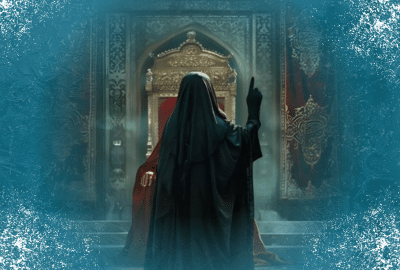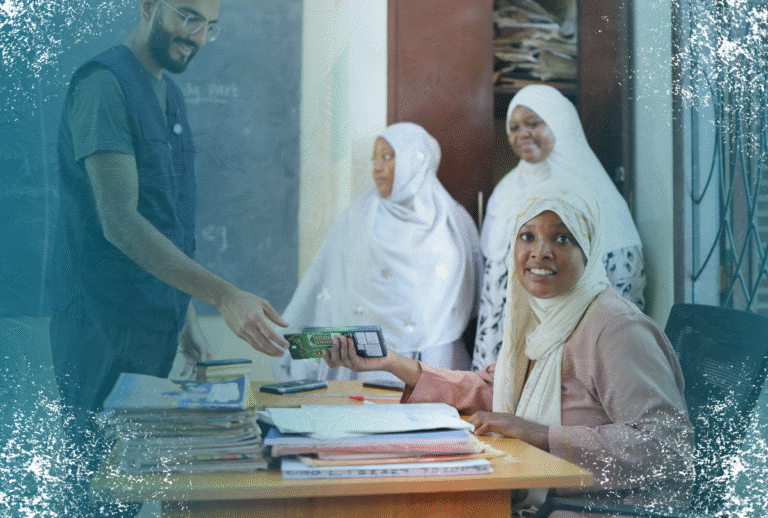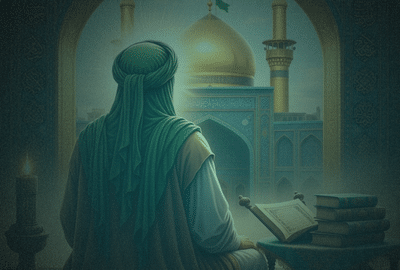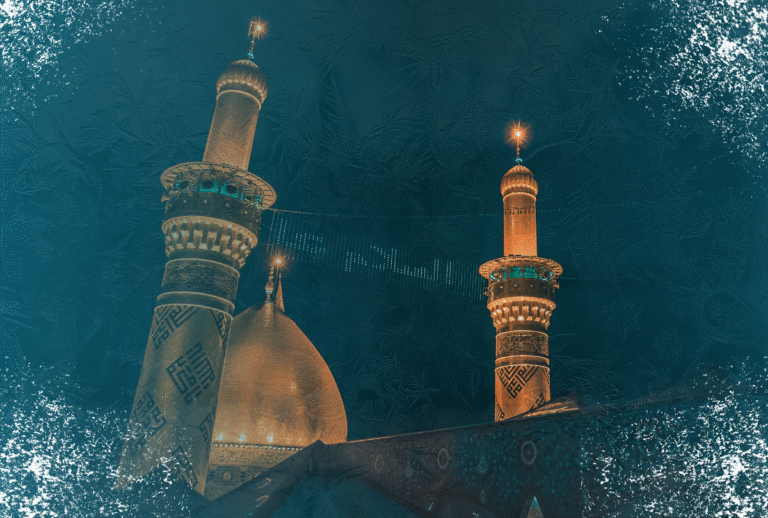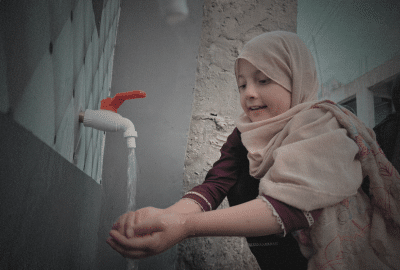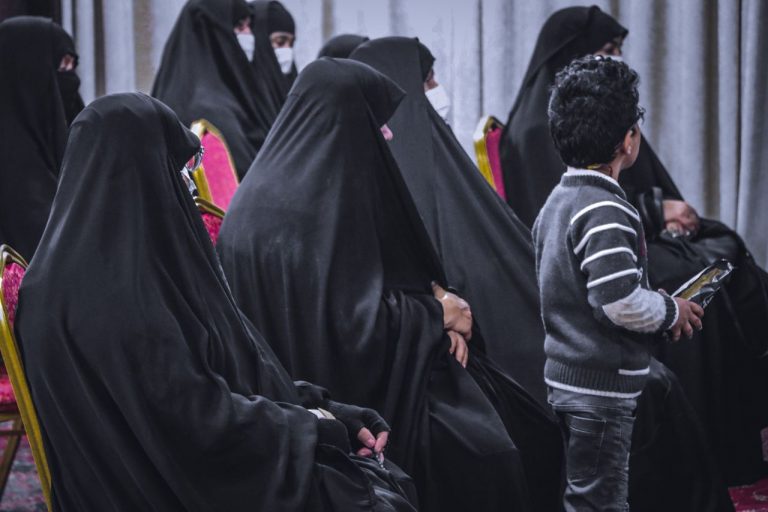Voices of Truth: 5 Women Who Changed Islamic History
Since the beginning of Islam, women have been bearers of truth, guardians of faith, and beacons of resilience.
These women stood firm in the face of oppression, carried the weight of divine responsibility, and shaped the course of Islamic history with their knowledge, strength, and devotion.
Among them, Sayyida Fatima Al-Zahra (sa) shines as the eternal example. But she was not alone.
From the dawn of Islam to the tragedy of Karbala and beyond, women have continuously carried forward the legacy of truth.
This legacy of truth is what unites our ummah, and turns your compassion into tangible goodness for those in need.
How Does the Quran Honour Women?
As the daughter of the Prophet Muhammad (saww), Sayyida Fatima (sa) was more than a family member. She was his honour.
Prophet Muhammad (saww) is reported to have said:
“Indeed the men and the women who submit to Allah, the men and the women who believe in Allah, the men and the women who are obedient to Allah, the truthful men and the truthful women, the patient men and the patient women, the humble men and the humble women, the charitable men and the charitable women, the men who fast and the women who fast, the chaste men and the chaste women, the men who remember Allah often and the women who remember likewise—Allah has prepared for them forgiveness and a mighty reward.” (Quran 33:35)
This verse reminds us: women of truth have always been part of the divine narrative.
1. Sayyida Fatima Al-Zahra (sa): The Heart of the Ummah
As the daughter of the Prophet Muhammad (saww), Sayyida Fatima (sa) was more than a family member. She was his reflection.
Prophet Muhammad (saww) is reported to have said:
“She is the principal of women on the Day of Resurrection.” (Hilyat al-Awliya’, vol.2 p.42.)
After the Prophet’s (saww) passing, Fatima (sa) stood firmly for justice and truth.
Her Sermon of Fadak was a declaration of her deep Quranic knowledge, courage, and commitment to uphold the truth.
But her legacy goes beyond words.
She nurtured a household that would carry the torch of Islam through the most difficult trials; from Imam Hassan (as) and Imam Hussain (as) to her daughter Zainab (sa), who would rise as another powerful voice of resistance.
Learn more about the holy Ahlulbayt (as) here!
Her life teaches us that truth must always be spoken.
2. Sayyida Khadija (sa): The First to Believe
Before public revelation began, Sayyida Khadija (sa) believed.
She was the first supporter of the Prophet (saw), and a woman of unmatched generosity and strength.
Her wealth and unwavering loyalty sustained the early Muslim community during times of attack and persecution.
She reminds us that supporting truth sometimes means standing alone, and doing so with dignity.
3. Sayyida Zainab (sa): The Voice of Karbala
The battlefield of Karbala was not just a place of swords. It was a place where truth was defended with words.
After the martyrdom of Imam Hussain (as), it was Sayyida Zainab (sa) who rose. She confronted tyrants in their own courts, and carried on the legacy of truth and justice.
She preserved the message of Karbala through sermons that echoed the strength of her mother. Despite her grief, captivity, and loss, she never let the truth die.
She stands as a timeless symbol of courageous resistance and spiritual leadership.
The battlefield of Karbala was not just a place of swords. It was a place where truth was defended with words.
4. Sayyida Masuma (sa): The Scholar and Pilgrim
Generations later, Lady Masuma (sa), the sister of Imam Al-Ridha (as), carried the torch of knowledge and spirituality.
Her journey to Qom became a source of blessings, and her shrine today is a place of learning, devotion, and spiritual renewal.
Her life is a reminder that the pursuit of knowledge and piety is a form of service to Allah (swt).
5. Lady Maryam (sa): Purity, Patience, and Prophetic Legacy
Finally, among the most revered women in Islamic tradition is Lady Maryam (sa), the mother of Prophet Isa (as).
Her story is one of complete submission to Allah (swt), even when faced with isolation, accusation, and pain.
She withdrew in devotion, endured the test of giving birth alone, and then returned with a truth that changed history.
The Holy Quran states:
“Another example of a righteous woman is Maryam, the daughter of ʿImran, who guarded her chastity, so We breathed into her Our spirit (i.e., ʿIsa), and she testified to the truth of her Lord’s words and His scripture, and she was of the obedient ones.” (Quran 66:12)
Lady Maryam (as) teaches us that the path of divine purpose is not always understood by the world; but it is always seen by Allah (swt).
Her purity, strength, and devotion earned her one of the highest spiritual ranks, and her name is honoured in both the Quran and the hearts of believers.
Their Legacy Lives On
These women did not seek power, recognition, or comfort.
They lived and, in many cases, suffered for the sake of Allah (swt), for justice, for the oppressed, and for the preservation of the true message of faith.
Today, their strength lives on in every mother raising her children with compassion and faith. In every woman who speaks up for justice. And in every believer who chooses patience over despair.
These women preserved Islam not through force, but through truth, resilience, and spiritual clarity.
And their strength continues to live in every act of compassion and courage today.
Let your compassion be the light of their legacy.
FAQ
Some of the most influential women in Islamic history include Sayyida Fatima Al-Zahra (sa), Sayyida Khadija (sa), Sayyida Zainab (sa), Lady Maryam (as), and Lady Masuma (sa). Their lives reflect truth, resilience, and deep devotion to Allah (swt), and they played vital roles in shaping Islamic thought and legacy.
Sayyida Fatima (sa), the daughter of Prophet Muhammad (saww), was a voice of truth, justice, and spiritual leadership. She delivered the powerful Sermon of Fadak, defended her father’s message after his passing, and raised the next generation of Imams. Her life is a model of piety, courage, and resistance.
After the martyrdom of Imam Hussain (as), Sayyida Zaynab (sa) became the voice of Karbala. She gave fearless speeches in the courts of Yazid and Ibn Ziyad, preserving the truth of Imam Hussain’s (as) mission. Her strength and leadership are celebrated across generations.
Lady Maryam (as), the mother of Prophet Isa (as), is honoured in the Quran for her purity, devotion, and trust in Allah (swt). Her story teaches patience in hardship and spiritual strength in solitude. She is one of the most revered women in both Islamic and Christian traditions.
Sayyida Khadija (sa), wife of Prophet Muhammad (saww), was one of the first to believe in his Prophethood. Her financial and emotional support played a critical role in the survival of early Islam. She is remembered for her loyalty, generosity, and unshakable faith.
Yes. Islamic history shows many examples of women like Sayyida Fatima (sa), Sayyida Zainab (sa), and others who spoke publicly to defend truth and justice. Their knowledge, eloquence, and leadership are celebrated across Shia Islamic traditions.


 Donate Now
Donate Now
 Donate
Donate
